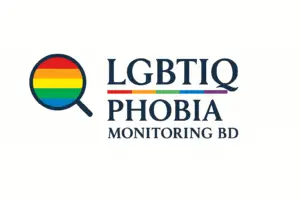Bangladesh Bank Orders Women Employees to Avoid Short Sleeves & Short Dresses
Dhaka, 23 July 2025
Bangladesh Bank, the nation’s central bank, has issued a directive mandating a strict dress code for all employees—drawing concern from rights groups over growing restrictions on women’s personal freedom and bodily autonomy in Bangladesh.
New Dress Code for Women Employees
On July 21, 2025, Bangladesh Bank’s Human Resources Department-2 issued an order requiring women staff to wear sarees, salwar-kameez with dupatta, or other professional and modest attire. The directive specifically prohibits short sleeves, short-length dresses, and leggings for female employees. Formal sandals or shoes and plain headscarves or hijabs are recommended. For male employees, only long or half-sleeved formal shirts and trousers are allowed, while jeans and gabardine pants are banned.
Bank spokesperson Arif Hossain Khan explained that the goal is “uniformity in office attire” and to maintain “equality and unity” in the workplace. He emphasized that, while hijab is not mandatory, those who choose to wear it must use only plain colors. The directive applies strictly to the workplace, with violations subject to disciplinary action.
Criticism and Concerns Raised
Fauzia Moslem, President of the Bangladesh Mahila Parishad, expressed surprise and concern over the move, stating, “Why is dress being raised as an issue for eliminating discrimination? Does anyone come to the Bangladesh Bank office in inappropriate attire?” She argued that such directives reflect a deeper attempt to create a restrictive cultural environment, diverting attention from the true priorities of workplace equality and professionalism.
Context: Rising Harassment and Pressure on Women’s Dress
This policy comes amid a rising tide of harassment and conservative pressure regarding women’s clothing in Bangladesh. Following the fall of the Awami League government last year, there has been a sharp increase in incidents where women were harassed for their attire. Despite initial arrests, many perpetrators were released from jail due to pressure from extremist Islamist factions and were publicly welcomed with flower garlands by supporters.
The issue is further compounded by right-wing politicians, such as a female leader from the newly formed National Citizen Party (NCP), who has called for the government to establish a committee to officially define “modest attire” for women—generally understood to mean burqa or hijab in the Bangladeshi context.
A Threat to Women’s Freedom and Equality
Human rights advocates warn that these developments represent a dangerous shift toward the policing of women’s bodies and personal choices, both by the state and by extremist social actors. Imposing specific dress codes, whether through formal directives or social pressure, undermines women’s autonomy and freedom of expression and emboldens those who wish to control women’s roles in society.
Sources:
- Prothom Alo – “Bangladesh Bank asks female employees to avoid short sleeves, short dresses, and leggings”. (prothomalo.com)
